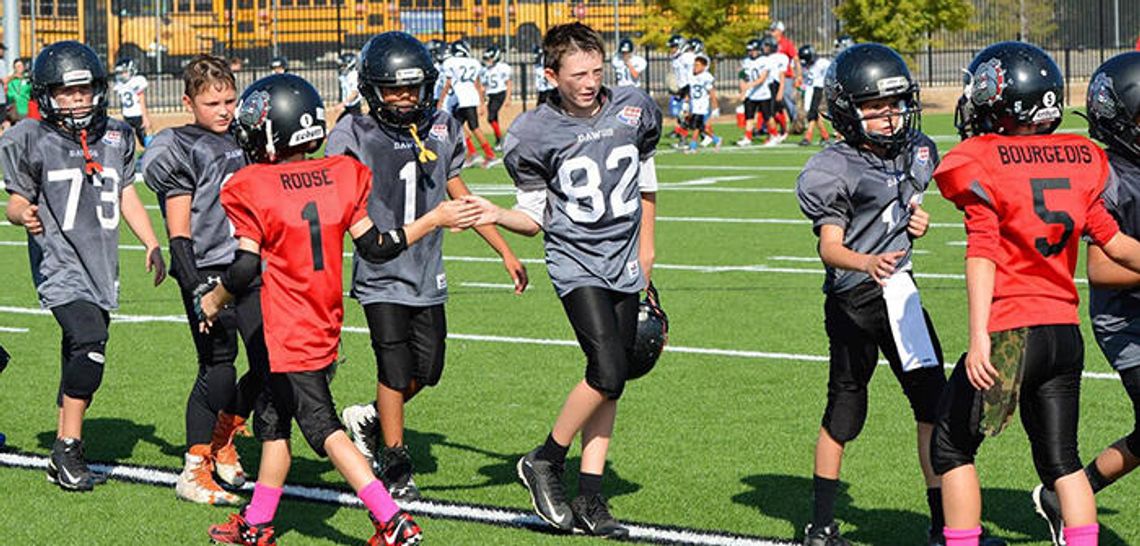Like many kids who grew up in Texas, football was a building block in the lives of Clint Friday, president of Dripping Springs Pop Warner (DSPW), and his coaching staff.
All nine men learned teamwork and perseverance while playing Pop Warner football in their youth. Friday went on to a collegiate playing career at Midwestern State University in Wichita Falls.
Friday hopes to instill those life lessons in Dripping Springs as part of a pilot program aimed at teaching young football players how to safely play the game.
This fall, Hill Country Pop Warner, which DSPW is a member of, will be one of a handful of Pop Warner affiliated organizations that will conduct a “Tiny Mite” division for players aged 5 to 7.
Tiny Mite, or rookie tackle, is an 8-on-8 version of football that’s played on a 50-yard field. Players, who must weigh no more than 75 pounds, play between the numbers.
Friday said the condensed playing field, along with the number of players, helps slow the game down and potentially limit the possibility of an injury.
“It’s going to be more kids just running and bumping into each other and having a good time,” Friday said.
As part of the pilot program, USA Football has offered to train the DSPW coaches to cater to the Tiny Mite league.
Friday said the focus is teaching the game safely to the younger athletes, as well as teaching better ways for coaches to introduce the game to younger children.
Additionally, coaches will learn new drills and new terminology specific for the game. That would, in turn, help the coaches teach players how to tackle and block in a safer manner.
The biggest challenge for coaches is keeping players engaged, especially at that young of an age, Friday said.
One way DSPW tries to maintain interest is using bags for tackling drills. Friday said DSPW doesn’t conduct much player-on-player contact in practice.
Items such as a tackling wheel, a big foam wheel with padding that rolls like a tire, is implemented to show younger players the ways to tackle.
“It’s fun for the kids because it’s a wheel they can chase down and tackle,” Friday said. “They learn how to tackle with the shoulder and get their heads out of the tackle.”
The evolution of safety techniques at the younger levels of football is a far cry from days past, Friday said.
In his youth, a culture of “being tough” was the mindset, with players at times playing through injury.
As the game has evolved, so has awareness of potential repercussions from concussions and other injuries, said Friday. He added there is a fine line “between being tough and being stupid.”
“You have to teach kids to be tough, but to also be smart,” Friday said.
Friday said he is in favor of children playing the game, as equipment has made football much safer.
He also believes the game “brought a lot out of me and myself in life in general” when it came to the life lessons learned.
Friday tells parents it’s their choice on whether or not they allow their child to play. He believes playing the game at a younger age reduces the velocity seen with higher age groups. That could allow younger players to learn the proper way to tackle and grow up with the game.
“If you’re going to play football, it’s safer to play younger than to play with older players,” Friday said.











